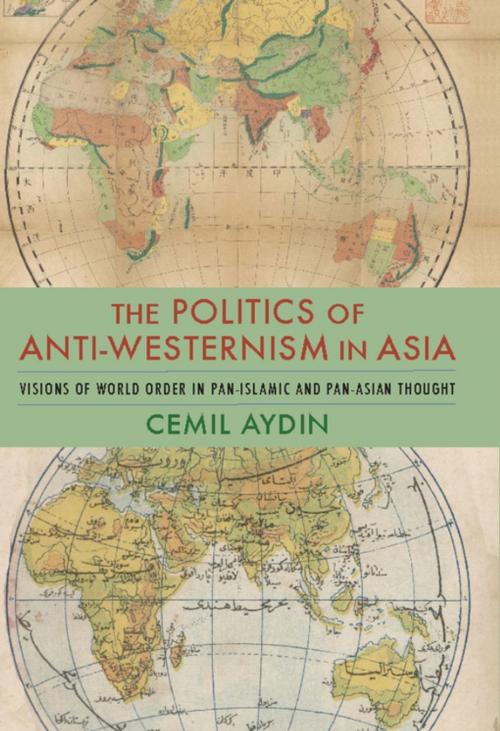The Politics of Anti-Westernism in Asia
Visions of World Order in Pan-Islamic and Pan-Asian Thought
Nonfiction, History, Asian, Asia, Social & Cultural Studies, Political Science| Author: | Cemil Aydin | ISBN: | 9780231510684 |
| Publisher: | Columbia University Press | Publication: | June 29, 2007 |
| Imprint: | Columbia University Press | Language: | English |
| Author: | Cemil Aydin |
| ISBN: | 9780231510684 |
| Publisher: | Columbia University Press |
| Publication: | June 29, 2007 |
| Imprint: | Columbia University Press |
| Language: | English |
In this rich intellectual history, Cemil Aydin challenges the notion that anti-Westernism in modern Asia is a political and religious reaction to the liberal and democratic values of the West. Nor is anti-Westernism a natural response to Western imperialism. Instead, by focusing on the agency and achievements of non-Western intellectuals, Aydin demonstrates that modern anti-Western discourse grew out of the legitimacy crisis of a single, Eurocentric global polity in the age of high imperialism.
Aydin compares Ottoman pan-Islamic and Japanese pan-Asian visions of world order from the middle of the nineteenth century to the end of World War II. He looks at when the idea of a universal "West" first took root in the minds of Asian intellectuals and reformers and how it became essential in criticizing the West for violating its own "standards of civilization." Aydin also illustrates why these anti-Western visions contributed to the decolonization process and considers their influence on the international relations of both the Ottoman and Japanese Empires during WWI and WWII.
The Politics of Anti-Westernism in Asia offers a rare, global perspective on how religious tradition and the experience of European colonialism interacted with Muslim and non-Muslim discontent with globalization, the international order, and modernization. Aydin's approach reveals the epistemological limitations of Orientalist knowledge categories, especially the idea of Eastern and Western civilizations, and the way in which these limitations have shaped not only the contradictions and political complicities of anti-Western discourses but also contemporary interpretations of anti-Western trends. In moving beyond essentialist readings of this history, Aydin provides a fresh understanding of the history of contemporary anti-Americanism as well as the ongoing struggle to establish a legitimate and inclusive international society.
In this rich intellectual history, Cemil Aydin challenges the notion that anti-Westernism in modern Asia is a political and religious reaction to the liberal and democratic values of the West. Nor is anti-Westernism a natural response to Western imperialism. Instead, by focusing on the agency and achievements of non-Western intellectuals, Aydin demonstrates that modern anti-Western discourse grew out of the legitimacy crisis of a single, Eurocentric global polity in the age of high imperialism.
Aydin compares Ottoman pan-Islamic and Japanese pan-Asian visions of world order from the middle of the nineteenth century to the end of World War II. He looks at when the idea of a universal "West" first took root in the minds of Asian intellectuals and reformers and how it became essential in criticizing the West for violating its own "standards of civilization." Aydin also illustrates why these anti-Western visions contributed to the decolonization process and considers their influence on the international relations of both the Ottoman and Japanese Empires during WWI and WWII.
The Politics of Anti-Westernism in Asia offers a rare, global perspective on how religious tradition and the experience of European colonialism interacted with Muslim and non-Muslim discontent with globalization, the international order, and modernization. Aydin's approach reveals the epistemological limitations of Orientalist knowledge categories, especially the idea of Eastern and Western civilizations, and the way in which these limitations have shaped not only the contradictions and political complicities of anti-Western discourses but also contemporary interpretations of anti-Western trends. In moving beyond essentialist readings of this history, Aydin provides a fresh understanding of the history of contemporary anti-Americanism as well as the ongoing struggle to establish a legitimate and inclusive international society.















